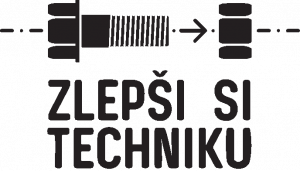Water treatment using magnetic field
 Projects
Projects
 Projects
Projects
Any solid particle substance which has magnetic properties can be influenced by a magnetic field. For many years, the university team has been engaged in research in the field of magnetism. Their suggestions and improvements of the magnetic field generator are used in industrial plants that are beneficial to all of us, whether they are magnetic flaw detectors that detect manufacturing and operating defects in steel pipes and cables or new materials for data storage – CD and DVD.
Promising application of their research is the elimination of mechanical parts in drinking water. Depending on the degree of pollution in a given location, it is good to clean water, because we drink it, but also to prevent impurities from clogging kitchen appliances and water pipes themselves. The existing filters located in pipes contained an electromagnet, or they used the phenomenon that each conductor through which the electric current is passing also has the magnetic properties.
The indisputable advantage of their device is an autonomous solution, i.e. it is independent of the electricity distribution network. The base consists of a ring with permanent magnets produced from the rare earths. These types of magnets are characterized by high values of bulk density of magnetic energy. This makes it possible to produce a strong magnetic field in the ring cavity. After attaching the ring to the mechanical water filter, the field will affect the particles entrained in the water piping. Particles (dirt) are gradually deposited on the inside of the mechanical filter. We can simply take it out and remove the dirt by rinsing it under running water, screw it back, and the separation may continue.
Their facility can be used wherever water flows through water pipes. This will be most certainly appreciated by owners of weekend houses and cottages, or users or objects without an electrical connection. Currently, they are in contact with the commercial sector and gather all the necessary documents, results of measurements and analysis of water and impurities trapped to start industrial production.
The Nanotechnology Centre and the Institute of Physics, VŠB-TUO, participate in this research





